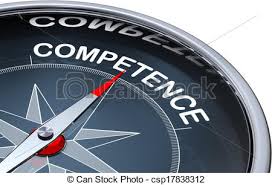
Competence alone can’t make a leader, but a perception of incompetence can undo one
Competent people are dependable, knowledgeable and capable. They advance in their careers. They attract interesting opportunities. Those who are seen as incompetent tend to confuse their coworkers and team and stagnate in their careers.
During my career I have seen many highly intelligent, well spoken, talented individuals in the workplace perceived as incompetent.
What were they doing that gave that impression of incompetence, in spite of the fact that they were completely competent in their field? Not sure I have all the answers, but I do have some observations about what gave me the impression of incompetence.
Here are some behaviors that I believe are the hallmarks of perceived incompetence.
Inaction
For me, the perception of incompetence appears when a leader, or a professional, doesn’t make decisions when necessary. This person, while competent in their field and very intelligent seems unable to know what to do. Most leaders have reached their positions by being competent, but this becomes lost unless the leader shows their competence by taking action.
There can be many excuses not to make a decision. For example, waiting for more options, more information, more data and or for more opinions prevents taking action. Competent people take action and believe that a good decision today is better than a perfect decision next month.
Being competent doesn’t mean that a leader knows how to do everything, but rather that they know what to do and how to get it done. Even the most brilliant leader who singularly tries to do everything is set up for failure. A competent leader will know where their strengths and weaknesses are and know how to surround themselves with the right expertise.
Missed deadlines
In the workplace deadlines are necessary to implement projects, make decisions and many other important business activities. A deadline is a commitment. This means we have agreed to do something at a certain time. Now let’s go do it. Someone who cannot set, meet deadlines, and or honor commitments, I believe is perceived as incompetent. A failure to set and meet deadlines also means that others find it difficult to trust and believe in that person’s ability.
Too sensitive
Having empathy for others is essential for great leadership. When a leader appears too sensitive, then one can be seen as unable to manage effectively. Here’s an example, “He always misses deadlines for weekly staff meetings, but if I keep reminding him to be on time, he gets angry. I don’t want to make him angry.” An inability to deal with an issue, to be direct and honest with staff and peers is an important part of being perceived as a competent leader. A leader has to address a problem and move on. If not, problems won’t get resolved and do get worse. When this happens the leader can be seen as incompetent. Typically, when a person says that someone is too sensitive, they are usually describing themselves or their inability to deal with conflict.
Focus on distracting tasks and busywork
When someone is not confident in their ability to complete all aspects of their job, they will revert to doing those tasks where they are most comfortable. For example, I’ve seen a sales person that doesn’t like to make cold calls, or complete weekly reports, look for things to do that they like that are not related to their job. They created detailed charts, forecasts, spreadsheets and volunteered for other non related but noble projects. The salesperson’s response when asked how many cold calls they made, “I am getting closer to making those cold calls. Have a look at this great spreadsheet and forecast sheet that I spent the last month creating.” This displacement activity creates the impression that this person is not competent to do their job completely.
Long hours
A person who boasts of working late nights, arriving many hours early in the morning and taking no time off from work seems incapable of managing their time effectively. While they think this is heroic, in my opinion it is probably the single biggest hallmark of incompetence. When asked what they completed during these long days, weeks and months, the results appear inconsistent with the long hours. To work effectively, one must learn to prioritize what is important, what is urgent and one must learn how to set a pace that allows for other aspects of life.
This is by no means an exhaustive list, but more of an awareness of what may contribute to the perception of competence and incompetence.
What else have you seen? Let us know your thoughts.
If you would like to learn more about competence and how it impacts your executive and leadership presence, become a member of The Executive Presence Group. We have many resources and information to help you.
